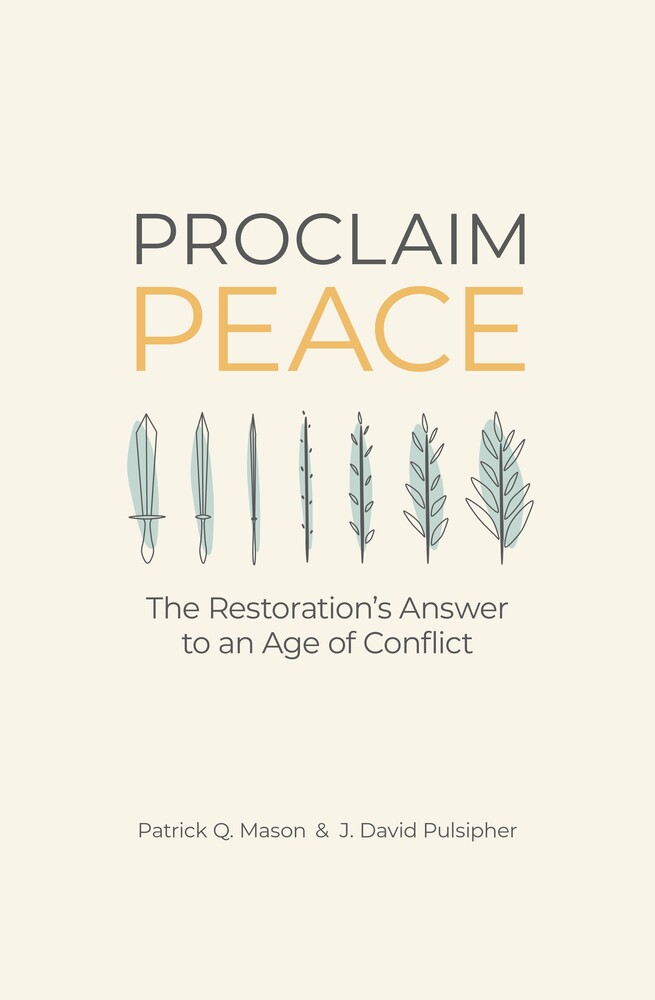Ah, Thanksgiving. That wonderful time of year when families gather, give thanks for blessings, gorge themselves into a turkey-and-stuffing-induced stupor—and anxiously anticipate what this year’s fight at the dinner table is going to be. Will it be religion? Politics? Or maybe the potent combination of both?
Families are inherently unruly things. No family is perfect. And every family’s disagreements and arguments are unique to its own distinctive blend of personalities, experiences, choices, and—yes—religious and political identities.
Especially at big gatherings that include extended family, it has become increasingly rare for everyone at the table to be on the same side politically or to be fully active in the Church, even if they were raised that way. Given the fierce divides we see in the broader culture, how can we turn our Thanksgivings into the joyous gatherings we hope for, rather than becoming a dreaded occasion for yet another family blowup?
It’s all about getting comfortable with conflict, and then recommitting to love.
► You may also like: How to seek peace in an age of conflict
Conflict versus Contention
Most Latter-day Saints can at least paraphrase the Savior’s words to the people of Nephi gathered at the temple in Bountiful: “He that hath the spirit of contention is not of me, but is of the devil, who is the father of contention, and he stirreth up the hearts of men to contend with anger, one with another. Behold, this is not my doctrine, to stir up the hearts of men with anger, one against another; but this is my doctrine, that such things should be done away” (3 Nephi 11:29–30).
Latter-day Saints often assume that contention and conflict are the same thing and that peace means absolute unity, achieved by eliminating differences. So we bury our differences and disagreements, then force a smile. But those conflicts don’t stay buried long—almost inevitably they surface in some form, often through passive-aggressive attitudes and behaviors.
Jesus didn’t say that that all conflict was wrong—only the destructive forms of conflict He labeled “contention.” Christ never urged followers to be clones, with completely identical ideas and values; He commanded them instead to engage their differences in positive ways that would avoid “anger” and “disputations.”
Rather than issuing a general prohibition against all forms of disagreement, Jesus chided the Nephites for manufacturing points of division when none need exist. Note this important point: the contention that the Savior commands us to avoid doesn’t come from simply expressing different opinions or seeing the world in different ways; instead, contention comes from engaging that difference in a spirit of anger.
Opposition in All Things
Conflict is woven into the very fabric of creation. Lehi taught that “there is an opposition in all things,” and without that opposition creation would have been “a thing of naught” (2 Nephi 2:11–12). God’s creative power was exercised by introducing difference, or conflict, into the cosmos—separating light and darkness, land and water, plants and animals, and finally male and female.
All of these pairs in one way or another exist in fundamental and perpetual tension. But it is precisely where they come into conflict with one another that remarkable things happen: The conflict between day and night gives us beautiful sunrises and sunsets. The conflict between land and water gives us beaches and rocky shorelines. The “opposite” yet complementary nature of women and men allow couples to come together to create new life. No wonder God, at the end of the sixth day, said that creation—full of creative conflict—was “very good” (Genesis 1:31).
Transforming Conflict
Before anyone even arrives for Thanksgiving dinner, you can probably anticipate the fault lines of conflict that already exist. Uncle Bob is a die-hard conservative, while your daughter is an outspoken progressive. Your brother and sister-in-law have left the Church and are quick to make insensitive comments and question the motives of everyone else who remains a member. Grandma simply can’t understand why and how the beautiful and brilliant college-aged granddaughter she loves now uses the pronoun “they” and has brought a girlfriend to dinner.
What to do, other than devising a brilliant seating chart and hiding the sharp knives?
Here are five ideas:
- See people as people. Don’t reduce people to your differences with them. Uncle Bob may be a hardcore conservative, but he isn’t only that (even if his Facebook page suggests otherwise). If you simply can’t talk about politics with him, find something else to talk about—his kids, fishing, music, travel—whatever he likes. If you can find something the two of you have in common, focus on that. Remember, Uncle Bob is a person, just like you. Your relationship is more important than your disagreements.
- Ask questions. Show genuine interest in other people by being inquisitive. You don’t have to debate your niece about her progressive cause-du-jour. Asking her why she cares so much about the things she does may reveal that she’s motivated by values that you actually share.
- Give grace. Latter-day Saint peacebuilder Chad Ford writes, “How we see others, and then how we treat them, powerfully influences how others see us.”1 People may come in bracing for a fight. When you treat them with love and respect rather than suspicion and the stink-eye, you will not only surprise them, but figuratively disarm them. Your grace opens up space for them to respond in kind.
- Be the change. Rather than getting trapped in the same old cycle of conflict, make the choice to change the dynamic, beginning with yourself. Start by looking in the mirror and asking how you have contributed to the conflict. This is really hard to do. It “requires us to let go of our justifications,” Ford writes, “and embrace the humanity of those” we disagree with, even if they have hurt us. “It requires getting over ourselves so that we can be fully open to others.”2 There are no guarantees the other person will respond favorably. But we can’t expect others to change if we aren’t willing to change ourselves.
- Be a peacemaker. Jesus didn’t say “blessed are the peace-believers” but rather, “blessed are the peacemakers” (Matthew 5:9, emphasis added). God calls us to transform the conflicts not only in our own lives but also those we see around us. When you see anger boiling and disputations rising at another end of the table, insert yourself. Be proactive. A well-timed compliment, an acknowledgment of the goodness of both people in the argument, or even a piece of apple pie (with ice cream, of course) may be just the thing needed to lower the temperature in the room so that anger subsides.
► You may also like: Seeking to understand loved ones experiencing faith-related doubts, with Patrick Mason
It’s worth revisiting the advice that President Howard W. Hunter gave during the holiday season several years ago. Making this your mantra for Thanksgiving may be the perfect way to prepare your heart for the peace and goodwill we seek during the Christmas season:
“This Christmas, mend a quarrel. Seek out a forgotten friend. Dismiss suspicion and replace it with trust. Write a letter. Give a soft answer. Encourage youth. Manifest your loyalty in word and deed. Keep a promise. Forgo a grudge. Forgive an enemy. Apologize. Try to understand. Examine your demands on others. Think first of someone else. Be kind. Be gentle. Laugh a little more. Express your gratitude. Welcome a stranger. Gladden the heart of a child. Take pleasure in the beauty and wonder of the earth. Speak your love and then speak it again.”
You may not be able to miraculously transform your raucous extended family into Zion over the course of one meal. But the love you bring to the people around the table will go a long way toward easing perennial “contention in the land” (4 Nephi 1:15).
This Thanksgiving, try engaging the people around you—even those relatives that can be difficult to talk with just once a year—in a spirit of love, not fear (see 2 Timothy 1:7). Whether or not you’re doing the cooking, you can choose to bring an extra helping of grace, forgiveness, and love to everyone at the table.
For more insights about peacemaking and Christian discipleship from Patrick Q. Mason and J. David Pulsipher, check out Proclaim Peace, available at Deseret Book.
Proclaim Peace
Notes
- Dangerous Love: Transforming Fear and Conflict at Home, at Work, and in the World (2020), 98.
- Dangerous Love, 132.


